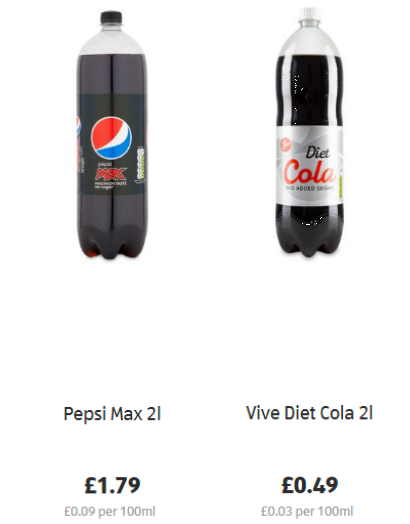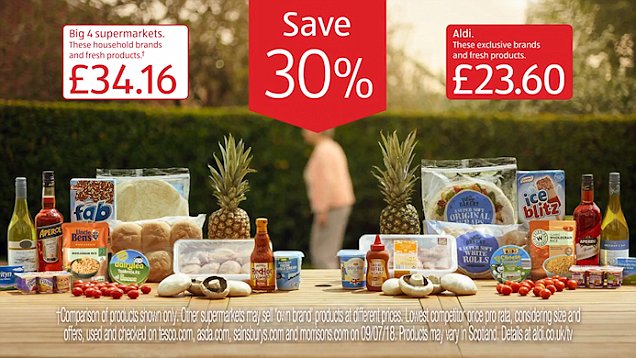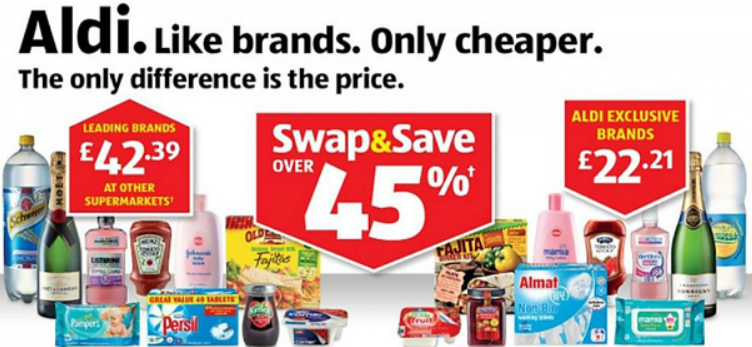What is Everyday Low Pricing (EDLP)?
Everyday Low Pricing is the concept of pricing used by many retailers which position themselves as the most affordable brands. Specifically, everyday low pricing means the product prices are consistently low throughout the year and consumers don’t have to wait for special sales promotions or coupons to get a good deal. The price people see is the price they expect to pay.
The rise of Everyday Low Prices (EDLP) during the economic downturn
The cost of living crisis in the UK after the Covid-19 pandemic has shifted consumer focus on good value for money. In the UK, shoppers are becoming more price-sensitive under continuous high inflation rates and mortgage payments. According to a report by Mintel, people still find ways to save their budget and demand more value for money.
With over 60% of British consumers remaining insecure about their financial situation and still cutting their discretionary spending, the rise of retail discounters employing Everyday Low Pricing such as Aldi and Lild is predictable.
In 2022, Aldi outperformed Morrison and became one of the fourth leading grocers in the UK. So far, the company accounts for 9.9% of the market share in the retail sector. Even the market leader Tesco has recently launched the Low Everyday Prices scheme, locking prices on over 1000 products to show its commitment to providing consumers with the best value for money during the crisis.
Overall, the rise of everyday low pricing can be attributed to the cost of living crisis and economic hardship spreading across the world after the pandemic. However, as the perceived quality of retail discounters is increasing, it is no surprise that everyday low pricing will become a dominant strategy for retailers in 2024. In 2023, Aldi overtook Asda to become the top retailer with high perceived value and quality, showing that low prices will not affect how people perceive quality.
The Marketing Mix of Aldi – How Aldi sustains its everyday low prices
In the UK retail sector, Aldi is the most renowned brand for everyday low prices. Arriving in the UK in 1990 and opening its first store in Birmingham, Aldi has established itself as an everyday low-pricing (EDLP) brand for British consumers through the careful executive of Marketing Mix.
1. A focus on privately-owned products
Around 80% of Aldi products are privately labelled, which means that the vast majority of products you find on Aldi shelves will be their own brands rather than national brands you may see in other supermarkets. Privately owned products help Aldi avoid the markups associated with popular brands, hence keeping its everyday prices always low. On average, these privately owned products are 30-50% cheaper than nationally known brands. For instance, a 2l Pepsi Max costs around £1.79 while an Aldi cola with the same volume only costs £0.49, which is 75% cheaper.

Besides, as the company negotiates directly with manufacturers for most of its products, it can obtain better deals on bulk purchases and influence product specifications to optimise cost efficiency. Despite its low prices, the company still guarantees rigorous quality control to compete effectively with prominent brands on quality perception. Among the UK retailers, Aldi is one of the most trustworthy brands in consumers’ perception.
Finally, Aldi has sustained its everyday low pricing very well due to the limited number of options. The brand only stocks around 2000 products in its stores while the average figure for other large grocers is up to 40.000 options. By restricting the number of available options and focusing on privately owned products, Aldi minimises the storage space, simplifies ordering processes, and avoids overwhelming shoppers which undoubtedly improves the perception of the in-store experience.
2. No sales promotion or discount
The core principle of Everyday Low Pricing is to constantly provide consumers with low prices on products throughout the year. The pricing image of a retailer using this approach is that customers can always expect to find their desired products at a set and affordable price, without needing to wait for special sales events.
While Aldi might occasionally have limited-time offers or special buys, these are typically strategic and never overshadow the core EDLP concept of offering great value on a daily basis.
3. Price-focused Promotion
Initially perceived as a supermarket for poor shoppers who have to buy cheap and low-quality products, Aldi has turned its key problem into the primary point of difference which means that access to high-quality products should be made affordable to serve the masses, not the few.
The company has focused on prices and featured British shoppers in its communication campaigns to prove that shopping at Aldi is the smartest choice. Aldi’s communication strategy makes the price the star. The company also features relatable British shoppers in their campaigns, subtly suggesting that saving money on groceries is a smart choice for everyone. Overall, the brand has successfully highlighted the only difference between it and other competitors, which is about getting the same quality at a much cheaper price.


4. A small store with no-frills service
Sales channels are important for Aldi to manage its cost structure since rent costs typically account for a considerable proportion of total costs. With an average size of 17.825-18.000 square feet, it only costs Aldi around $1.5 million to build a grocery, whereas a normal brand spends $6 million on its building. This translates into lower rent costs, utility bills, and maintenance expenses, all of which help the brand sustain its everyday low pricing.
Another aspect that contributes to the overall cost-effectiveness of Aldi’s sales channels is the company’s focus on customer-centric efficiency. This means that it gets rid of any unnecessary in-store services. At Aldi, consumers typically bag their own groceries, reducing the need for additional cashiers and streamlining the checkout process. Besides, a deposit system for shopping carts incentivises customers to return them, reducing labour costs associated with cart retrieval.
The Challenges of Everyday Low Pricing (EDLP) Strategy
1. A tighter profit margin
An EDLP retailer has to set prices that are constantly competitive, even during the economic downturn when supply costs increase. Everyday low pricing means that there is less opportunity to use temporary price hikes to boost profits. This likely leaves less room for markups compared to stores that rely on sales and promotions.
In the case of Aldi, the company sustains its everyday low pricing approach despite the cost of living crisis in the UK, which used to squeeze its profit down by 86.5% in 2021. Hence, to maintain EDLP, retailers need to be highly efficient in managing their marketing mix and costs throughout the supply chain, from negotiation with suppliers to minimising operational expenses.
2. Undesirable brand associations
Cheap products may be perceived as low-quality and inferior. When Aldi arrived in the UK in the late 1990s, the company was mocked by British consumers as a dirt cheap shop for underprivileged buyers. Nowadays, many consumers remain conservative that cheap privately owned products are inferior in quality compared to national brands found in traditional supermarkets.
Beyond price, Aldi initially struggled to establish a strong brand identity. The focus on EDLP overshadowed other potential brand attributes like convenience, product innovation, or a unique shopping experience. In other words, everyday low prices are the only point of difference that the retailer has when benchmarking against other highly differentiated names in the sector.
Sy Chu
As an analytical and creative marketing enthusiast skilled in customer analysis, content research and brand management, my passion is help businesses gain insights into their brand and marketing strategies to drive impactful outcome to their success.
